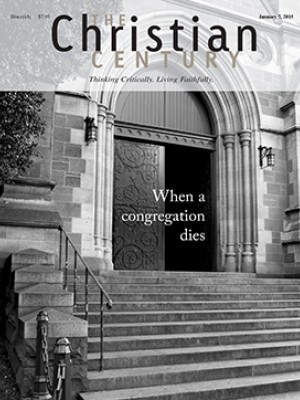Trial by podcast

The premise of Serial, a podcast spin-off of the WBEZ Chicago radio show This American Life, is that people love stories. The first season, which is still unfolding, recounts the murder of 17-year-old Hae Min Lee in 1999 and the subsequent arrest and conviction of her ex-boyfriend Adnan Syed, who began serving a life sentence for the crime in 2000. Adnan maintains his innocence to this day.
Telling this story one segment at a time over many weeks adds suspense and intrigue. As listeners live with the story and the questions it raises, its characters become a part of their lives.
But “recounts” isn’t exactly what Serial does, since no two people interviewed on the show have the same memories or experiences of the events surrounding the murder. The show circles these events, following the trail of fragmented memories from each new witness to a collection of old letters that were never used in court to the unreliability of cell phone records to inconsistent alibis and an improbable sequence of events. The result is captivating storytelling with real-life events becoming stranger—and denser—than fiction.
Read our latest issue or browse back issues.
Serial has been described as “the best television on the radio.” And the best television in recent years has been described as the rebirth of 19th-century novels in visual form. Serial host and executive producer Sarah Koenig has compared the podcast to the novels of Charles Dickens, which were serialized before they were collected into bound volumes.
There is one significant difference, however. Serial isn’t fiction. The show promises to follow the story “until it is resolved” and “wherever it leads.” But what does that mean? Until the host and production team become convinced of Adnan’s guilt or innocence? Until they construct a satisfying account of one day in January 1999? Until Adnan has exhausted all appeals? The show’s creators don’t know what they mean, and they’re honest about this. There’s no genius in the writer’s room figuring out how to wrap it up.
On the series website, the show’s creators say that their investigations keep leading them back to two central questions: “How can you know a person’s character? How can you tell what they’re capable of?” Koenig is concerned about being “taken in” by Adnan. It’s easy to feel sympathy for him and question his guilt. But what if he is just playing Koenig, and us?
Like Koenig, I want to know if we can believe Adnan. But I can know Adnan only through Koenig’s accounts of him. The depth and care of the storytelling that unfolds over a long time period make me feel like I’m working alongside Koenig. Just as when I read a good novel or watch a great TV show, I both feel sympathy for the characters and pass judgment on them.
But the genre of nonfiction induces moral vertigo. Millions of people are listening to this story, concocting whodunit theories, and passing judgment on Adnan. When we do that, do we have a moral obligation to him or to Hae Min that we don’t have to, say, David Copperfield?
It’s one thing to dismiss a fictional character because he seems duplicitous or vile. In fact, recognizing his duplicity might be part of my own moral formation. When the person under judgment is real—has a life independent of the story through which I “know” him—what is the nature of my relationship to him? Perhaps “not being played” falls under Jesus’ injunction to be wise as serpents. But where does that intersect with the command to love unconditionally, even our enemies?
Although she doesn’t frame these questions theologically, I think Koenig and her collaborators feel this moral burden too. Part of what is so fresh about Serial is the relationship it creates between Koenig and Adnan and, by extension, between listeners and Adnan. Koenig is not just reporting a story; she is crafting one. She is vocal about how her own emotions and experiences shape the process. As a result, the show experiments with a new genre at the nexus of investigative journalism, journalistic essay, and fictional story.
As I listen, I find myself extending my question about my relationship to Adnan to the stories of the people who cross my path every day. Do I have the patience to hear them this fully, with this kind of complexity? Am I willing to extend that time and patience even if I might get played? I am hopeful that this new genre of storytelling might be one way to help me do that.






